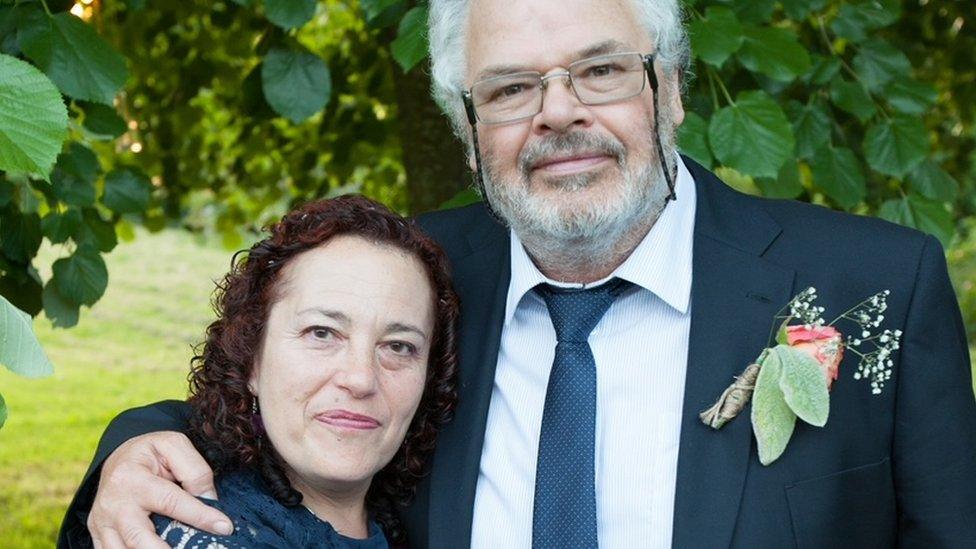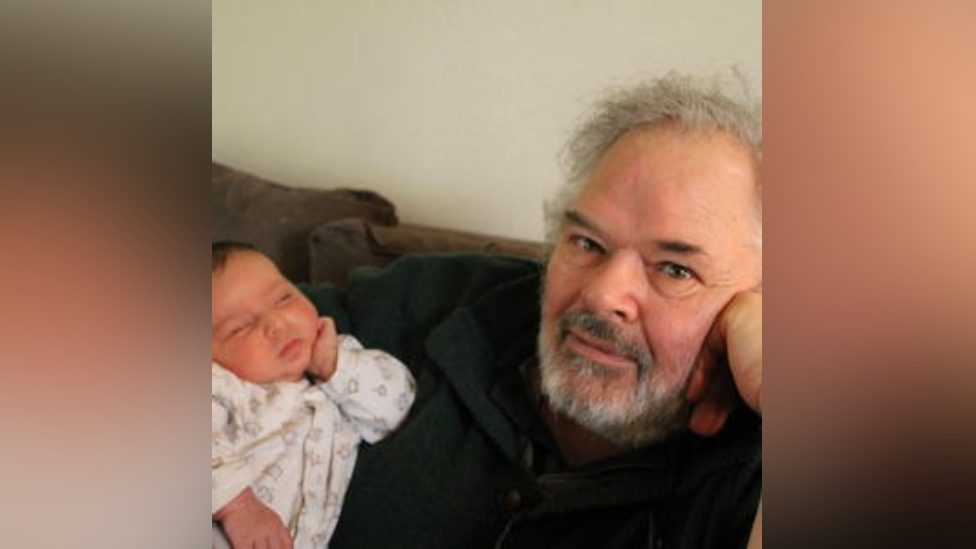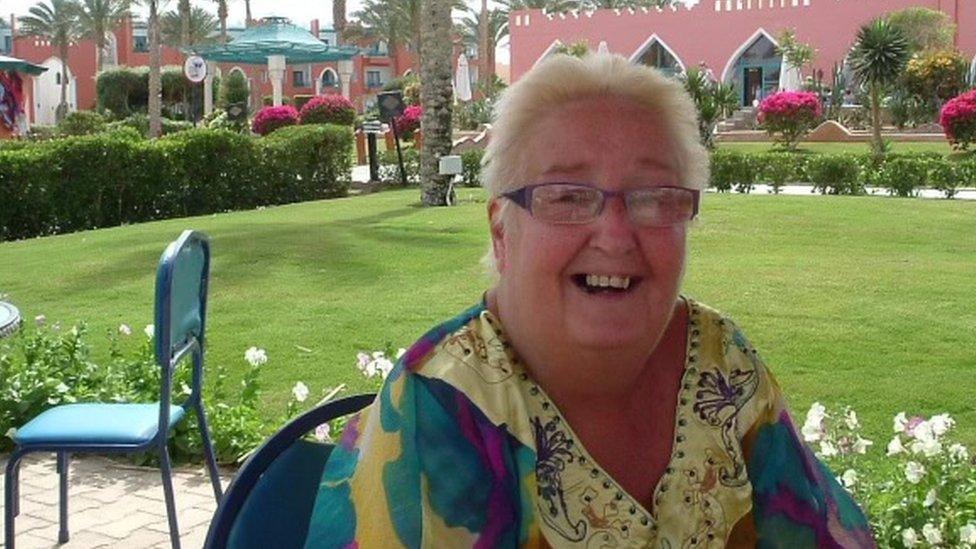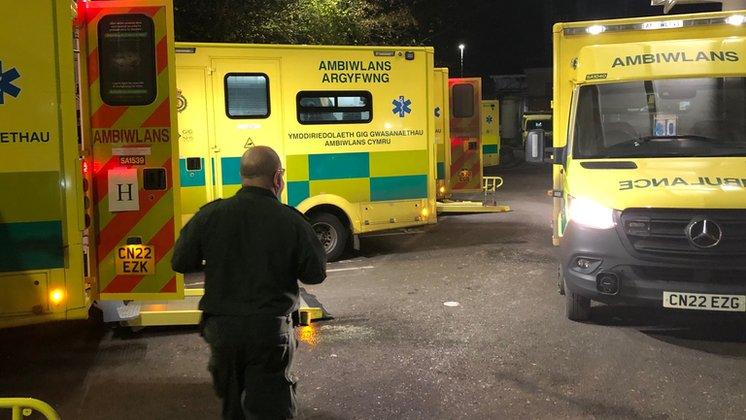NHS: Man died in hospital after four-month carer wait
- Published

Alan John spent the last four months of his life desperate to get out of hospital and home to his wife Ruth
The widow of a man who died in hospital after waiting months for carers so he could go home has said "the sick and most vulnerable" are being forgotten.
Retired florist Alan John, 76, was admitted to South Pembrokeshire Hospital in December 2021 after a fall.
In June 2022, he could have left but his wife Ruth said 100 others also needed a carer and he died in October.
The Welsh government said it was working with health boards and councils to speed up discharges.
Ruth, 67, said all her late husband wanted, after months of treatment, was to see his garden in the couple's Pembrokeshire home and "it was a great sadness that he never saw it again".
When Alan died after suffering a blood clot, he still did not have carers assigned to him.
"He knew there was a shortage of carers and he did despair about what was happening," Ruth told BBC Wales Live.
"I think he got so ill he just had to accept it, but he would talk to me a lot about how he wished he could come home."
Despite this, Ruth is not critical of the NHS or council staff who "did their best".
She added: "I think it's just the sick and most vulnerable people get forgotten... I've met lots of people who work in care and they just can't survive on the money.
"It feels very unfair… the system needs to change and I hope we're not here in two years' time with the same thing."

Alan John was a grandfather to Rohan
Pembrokeshire council said it "sincerely regretted" delays in sourcing care but was working with "an increasingly pressured financial envelope" and had taken "significant steps" to address the shortage of care workers.
A snapshot figure taken on one day at the end of April showed about 1,750 people in hospitals in Wales were fit to go home but could not.
A doctors' union said the pressure on A&E departments due to discharge delays was "worse than it has ever been".
Why are people stuck in hospital?
Official figures suggest the most common reason (39%) was "waiting for assessment".
However, in July, BBC Wales Investigates revealed patients were stuck in hospital for up to 11 months waiting for carers so they could return home.
The Welsh government said it was "hopeful that things are gradually beginning to improve" but the latest data suggested the number of people waiting for a care home placement (26%) or care at home (12%) had not reduced.
Just this week, Cardiff and Vale health board declared a "business continuity incident" because of a lack of beds caused by "lengthy patient discharges" while ambulances were left queuing outside hospitals for up to 28 hours last month.
Stephen Kelly, a respiratory consultant from British Medical Association Cymru, said the figures would not be a surprise to his colleagues in A&E.
He added: "It's nice that [the Welsh government] are hopeful, but realistically, I think it's more correct to say most of us are afraid of what's going to happen over the winter months."
Despite huge efforts to get people out of the "back door" more quickly, Dr Kelly said what was "crystal clear is that it is worse than it has ever been".
The Welsh government said it had a £146m fund to support people to return home and £25m to avoid admissions.
It added: "We are working with health boards and local authorities to identify what more can be done to support the discharge process.
"We know they are under significant pressure but we are encouraging them to manage resources around those areas with the highest delays in health and in social care."
New research from the BBC has also shown hospitals across England have experienced delays discharging patients, with about 60% of patients classed as fit to leave remaining in hospital at the end of an average day.
Related topics
- Published20 June 2023

- Published8 December 2022

- Published18 October 2022
